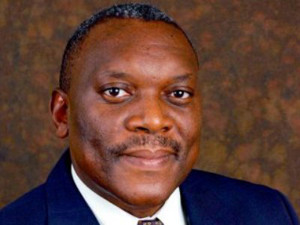
SA is not blind to the technological advances sweeping the globe and - with the shift to the Internet of things - the country needs to prepare for a world ruled by Internet connectivity.
This is according to newly appointed minister of the Department of Telecommunications and Postal Services (DTPS) Siyabonga Cwele, speaking at the Cisco Safari Conference at the University of Pretoria today.
While his counterpart, minister of communications Faith Muthambi, trumpeted the use of print media to reach South African citizens without ICT access this morning, Cwele spoke of a future world in which "the majority of the population will have - in one generation - gone from having no or limited Internet access to having total access".
He said the growth in connected devices - the Internet of things - is just the beginning of a technological revolution. "Imagine a world in which your alarm clock wakes you up early because of a scheduled meeting, your wardrobe would have selected the appropriate clothing for the meeting, and your driverless car or one driven by a robot would have already worked out your destination and time of arrival before you even get into it. Literally millions of devices will be talking to each other.
"In 1992, the entire Internet traffic was 100GB per day. That's probably the same amount of data some of you generate watching World Cup matches. Just 10 years later, this stood at 100GB per second and, according to Cisco's report entitled 'The Zettabyte Era', in 2013 it stood at 28 875GB per second. While only 33% of Internet traffic was generated from non-PC devices in 2013, it is predicted that by 2018, 57% of Internet traffic will emanate from non-PC devices."
Cwele further noted the World Economic Forum this year focused on the rapid manner in which ICTs are transforming all aspects of our lives. "This is the world we have to prepare for."
Crucial skills
In light of this, Cwele highlighted the importance of ICT skills, commending Cisco for its longstanding partnership with the department through its e-Skills Institute, which has now been launched as the Ikamva National e-Skills Institute (INESI).
He noted government's National Development Plan calls for an e-literate society by 2030. "Among the priorities it highlights is 'improving the quality of education, skills development and innovation'."
Cwele urged Cisco and SA's universities to continue on the path they were on, one of "collaboration and innovation in delivering skills and learning solutions - especially to our youth".
He said the launch of INESI earlier this year was government's recognition of the growing importance of e-skills to SA's economy and society. "The development of the National e-Skills curriculum and competency framework and the establishment of a virtual network for e-skills knowledge production and transfer are further steps along the path to the widespread dissemination of e-skills."
While SA had made much progress over the last 20 years, Cwele said persistent inequality and poverty still plagues our country. He said the provision of better access to educational opportunities would have a positive impact on the quality of life of South Africans, as well as the country's economic prosperity.
"Addressing the shortage of ICT skills in our country and continent is an opportunity to be seized. Ensuring that our young men and women of our country have not only the e-skills, but also the e-astuteness to take advantage of the advent of the society of the 'Internet of things' is vital.
"I look forward to engaging with Cisco and other role-players in the ICT industry on how we can implement our ICT priorities more rapidly. I urge all to rise to the challenge [and] join hands in pushing for the e-skills revolution that will move SA forward."
Share